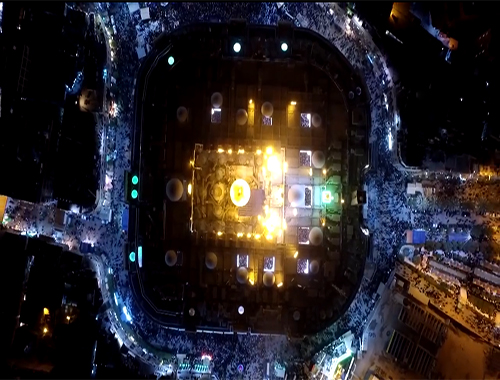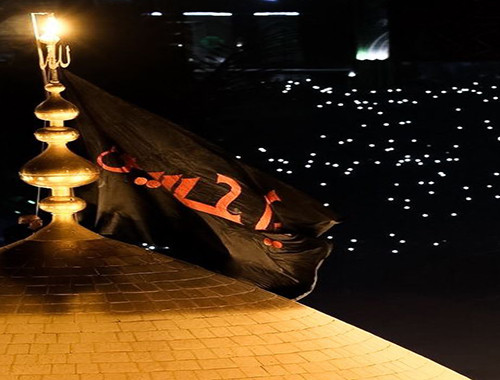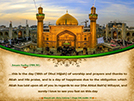Verse26
- Details
- Hits: 2526
(26)قُلِ اللَّهُمَّ مَالِكَ الْمُلْكِ تُؤْتِي الْمُلْكَ مَن تَشَآءُ وَتَنزِعُ الْمُلْكَ مِمَّن تَشَاء وَتُعِزُّ مَن تَشَاء وَتُذِلُّ
مَن تَشَاء بِيَدِكَ الْخَيْرُ إِنَّكَ عَلَىَ كُلِّ شَيْءٍ قَدِيرٌ
26. " Say: ' O' Allah! Master of the Kingdom! You shower the kingdom upon whom You please and take away the kingdom from whom You please! and You honour whom You please and abase whom You please; all goodness is in your hand. Verily You are All-Powerful over all things."
Commentary:
In some commentary books, such as Majma'-ul-Bayan and Tafsir-ul-Kabir by Fakhr-Razi, it is recorded that the Prophet of Islam (p.b.u.h.), after conquering Mecca, prophesied for the Muslims to be victorious in the battles against Iran and Room. At that time some of the hypocrites looked at each other perhaps mockingly. Then this verse was revealed.
Some other commentators have reported that the revelation of the verse occurred at the time of digging a ditch, when the Prophet (p.b.u.h.) sharply struck with a pick on a stone and a few sparks appeared. Then, he (p.b.u.h.) said: " I received the conquest of the castles of Ctsiphon (an ancient city near Baghdad) and Yemen from Gabriel in these sparks." Hearing this, the hypocrite smiled mockingly and then this verse was revealed.
It is necessary to mention that whatever from endowment, honour, and abasement have been referred to in this verse from the side of Allah, are according to the law and way of treatment of Allah. Otherwise, Allah does not give a person honour or does not abase another one. For example, an Islamic narration says: " Whosoever humbles himself for Allah, He will make him honourable; and whosoever be arrogant, He will despise him." (1) Therefore, both honour and abasement belong to Allah, but paving their way and preparing their causes depend to us.
This verse refers to the powers and governments which have been brought into existence because of the competency of persons and attachment of people. The verse does not mean those oppressive governments and powers which have come into being by the application of force and terror, furnished by making collusion with internal and external factors.
Explanations:
1. The real possessor of all governments is Allah. The ownership of other than Allah is temporary and limited.
2. Allah gives the government to the one who is eligible, as He gave it to Solomon, Joseph, Talul, and Zul-Qarnayn.
3. Unity in supplication and worship is a necessity. In Munajat-ush-Sha'baniyyah, from the Immaculate Imams, we recite: " O' Lord, my immensity and my deficiency are in Your hand (up to YourWill), not in that of other than you." (2)
4. Now that He is the Possessor, then others are not any things but dipositaries and should act according to the consent of the Essential Possessor.
5. What He determines (for giving and taking) are all good, though we may not know its philosophy and judge hurriedly.
6. Honour and abasement is up to the Lord, therefore, do not expect honour from others.
The Qur'an has criticized severely those who seek for honour from other than Allah and says: "... Do they seek honour from them?..."(3)
7. When the mortals are not really the landlords of their properties, why are they proud of having them in their possession or become despair for losing them?
" Say: ' O' Allah! Master of the Kingdom! You shower the kingdom upon whom You please and take away the kingdom from whom You please! and You honour whom You please and abase whom You please; all goodness is in your hand. Verily You are All-Powerful over all things."
(1) Bihar-ul-Anwar. vol. 101, p. 109.
(2) Bihar-ul-Anwar, vol. 94, p. 97.
(3) Sura An-Nisa', No. 4, Verse 139.











